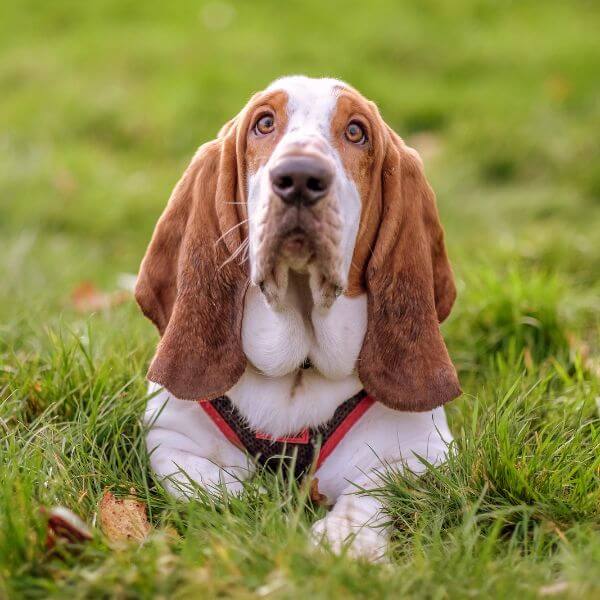PetMeetly helps you find a perfect breeding mate for your Basset Hound
If you own or breed Basset Hounds, PetMeetly is an excellent platform for finding the appropriate breeding mate for your furry buddy. PetMeetly was created to make finding a decent breeding match as easy and fast as possible.
You may quickly search for possible breeding mates for your Basset Hound depending on your location and other crucial factors like their age, gender, and health using PetMeetly’s advanced search technology. The site is simple to use and browse, and you can build a profile for your pet that includes photographs and information about their health and personality.
You may also go through the profiles of other Basset Hounds on the website and contact their owners to discuss prospective breeding opportunities. Join PetMeetly now to begin your hunt for the perfect breeding partner for your Basset Hound!
Tips for breeding a Basset Hound
This dog breeding checklist provides a comprehensive guide for responsible breeding practices and can help ensure the health and well-being of the parent dogs and their puppies.

- Health testing
Before breeding Basset Hounds, it is essential to screen for any known health issues in the breed. The most frequent health disorders in Basset Hounds, according to the Orthopedic Foundation for Animals (OFA), are hip dysplasia and elbow dysplasia. OFA suggests utilizing X-rays to test dogs for certain illnesses and posting the findings in their public database to assist breeders make educated choices. Bloat, a dangerous and even life-threatening illness that needs emergency veterinarian care, is another prevalent health concern in Basset Hounds. Breeders should collaborate closely with their veterinarians to check their dogs’ health and give proper treatment.
- Proper Nutrition
Obesity is a prevalent concern in Basset Hounds, and it may lead to a range of health difficulties such as joint discomfort, respiratory problems, and heart disease. According to research published in the journal BMC Veterinary Research, Basset Hounds have a greater risk of obesity than other breeds. Breeders should give their dogs a well-balanced diet suited for their age and activity level, and regularly check their dogs’ weight to avoid obesity.
- Early Socialization
Socialization is a critical component of growing a well-rounded and confident dog. Puppies that were exposed to a range of good experiences throughout their socialization stage were less likely to develop fear or anxiety-related behaviors as adults, according to research published in the Journal of Veterinary Behavior. During their early socialization stage, breeders should ensure that their pups are exposed to a variety of people, animals, and settings in a favorable and regulated manner.
- Exercise & Training
Although Basset Hounds are renowned for being laid-back and a little lethargic, they nevertheless need frequent exercise to be in excellent physical and mental health. Researc published in the Journal of Veterinary Behavior discovered that Basset Hounds who did not receive adequate exercise were more prone to exhibit destructive or violent behavior. Breeders should urge new owners to give regular exercise for their dogs and to engage in activities like as obedience training to keep their canines cognitively occupied.
- Breeding Age
Basset Hounds have a high incidence of dystocia (difficulty giving birth), which may be fatal for both the mother and her offspring. According to research published in the Journal of Small Animal Practice, Basset Hounds have a greater prevalence of dystocia than other breeds, and breeders should postpone mating female Basset Hounds until they are at least 2 years old to lessen the chance of difficulties during delivery.
Pedigree Analysis
Coat
Size
Temperament
Intelligence
Health
Grooming
Energy
Meet our Basset Hounds
Finding a reputable Breeder
Finding a trustworthy breeder for your Basset Hounds is critical to their health and well-being. Here are some pointers for finding a Basset Hound breeder:
- Learn the breed requirements:
Before beginning your search, get acquainted with the Basset Hound breed standards. These canines have long bodies, small legs, and a pleasant demeanor. They are well-known for their keen sense of smell. Understanding breed standards can help you evaluate prospective breeders and ensure they are producing dogs that satisfy these criteria.
- Check for health testing:
Basset Hounds are prone to a variety of health conditions, such as ear infections, hip dysplasia, and back difficulties. Look for breeders who do health checks on their dogs, such as hip screenings and eye examinations, to guarantee that they are producing healthy dogs. In addition, the breeder should produce paperwork to back up the test findings.
- Assess breed-specific characteristics:
Basset Hounds were originally developed for hunting and have a keen sense of smell. Look for breeders that value these characteristics and who produce dogs with a strong hunting sense and a desire to pursue odors. Breeders who engage in field trials may suggest that these features are important to them.
- Visit the breeder’s facility:
If feasible, pay a visit to the breeder’s facility to inspect their dogs and living circumstances. Check sure the facilities are clean and big, with enough space for socializing and exercise. The dogs should be sociable and well-cared for.
- Request references:
Request recommendations from past puppy purchasers or other breeders with whom the breeder has dealt. Contact these references to learn about their interactions with the breeder.
- Discuss breeding aims:
Inquire about the breeder’s breeding goals and mindset. They should be able to describe why they selected to breed their specific canines, as well as what they want to accomplish via their breeding program.
- Examine contracts and guarantees:
Make sure to go through the breeder’s contracts as well as any assurances they provide. A reputable breeder should provide a health guarantee and be prepared to return any dogs they have produced if the new owner is unable to care for them.
Find the best match for your Basset Hound
